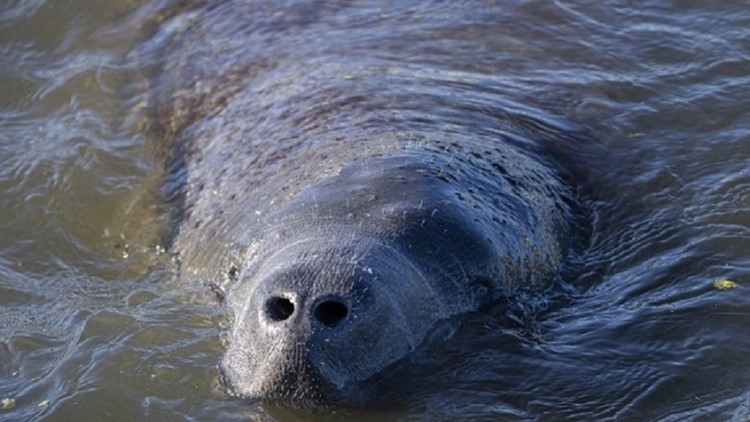ST. PETERSBURG, Fla. — November is Manatee Awareness Month, and the Florida Fish and Wildlife Conservation Commission wants to remind boaters to go slow out on the water and look out for manatees below.
At this time of the year, it's common for manatees to travel to Florida springs, power plant discharges and other warm-water sites as they survive winters by swimming in water warmer than 68 degrees Fahrenheit, FWC said in a news release Wednesday.
Although manatees are large, they can be difficult to see in the water, authorities say. The FWC provided the following tips to help keep the sea cows safe while people are out on boats:
- Follow guidelines and all manatee protection zones, which are marked by waterway signs
- Look out for them while boating
- Wear polarized glasses and always give manatees space
Seasonal manatee zones will require boaters to slow down in certain areas during the colder months in the state to help prevent the animals from being injured or killed, FWC says.
"Boat strikes continue to be a major threat to Florida manatees," FWC stated in the news release. "FWC law enforcement officers are on patrol in state waters to inform boaters of the seasonal manatee speed zones and take appropriate enforcement actions. Boaters are reminded to abide by the regulatory signs they see on the water."
Authorities say they want to remind people that disturbances at warm-water sites can cause manatees to swim out of protected areas and could lead them to life-threatening cold water.
Manatees are a protected species and it's illegal for people to feed, disturb, harm or harass them. Also, attempting to help a distressed or stranded manatee may cause more harm to the animal, FWC says.
Anyone who comes near a manatee is advised to do the following:
- Look, but don't touch manatees. Also, don't feed manatees or give them water. If manatees become accustomed to being around people, they can alter their behavior in the wild, perhaps causing them to lose their natural fear of boats and humans, which may make them more susceptible to harm.
- Do not pursue or chase a manatee if you see one while you are swimming, snorkeling, diving, paddling or operating a boat.
- Never poke, prod or stab a manatee with your hands, feet or any object.
- If a manatee avoids you, do not chase the animal for a closer view.
- Give manatees space to move. Avoid isolating or singling out an individual manatee from its group and do not separate a cow and her calf.
- Keep hands and objects to yourself. Don't attempt to snag, hook, hold, grab, pinch, hit or ride a manatee.
- Avoid excessive noise and splashing if a manatee appears nearby. The manatee may be resting and may surface without being aware of your presence. Noise and activity may startle the animal awake, which may put it in harm’s way if it is frightened and leaves the area.
- If the site you visit allows in-water activities near manatees, use snorkel gear and float at the surface of the water to passively observe manatees. The sound of bubbles from SCUBA gear or other devices may cause manatees to leave the area.
As of mid-September, there are 81 manatees in 13 critical care or rehabilitation facilities across Florida, Georgia, Ohio and Puerto Rico, according to FWC. All but 15 animals in those facilities are considered releasable and are scheduled to return to the wild soon.
To learn more about how to help keep manatees safe and their mortality rate, click here.



